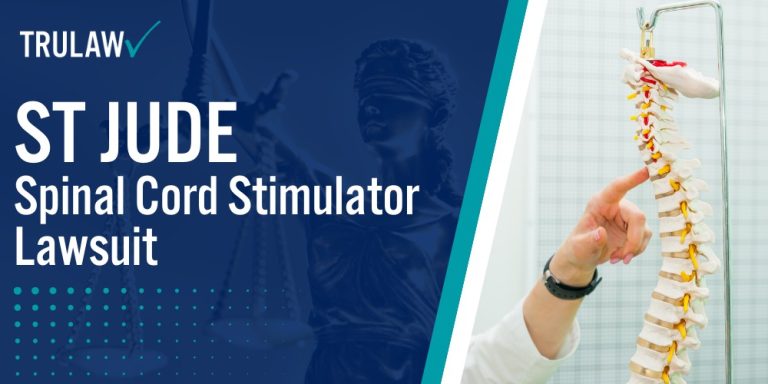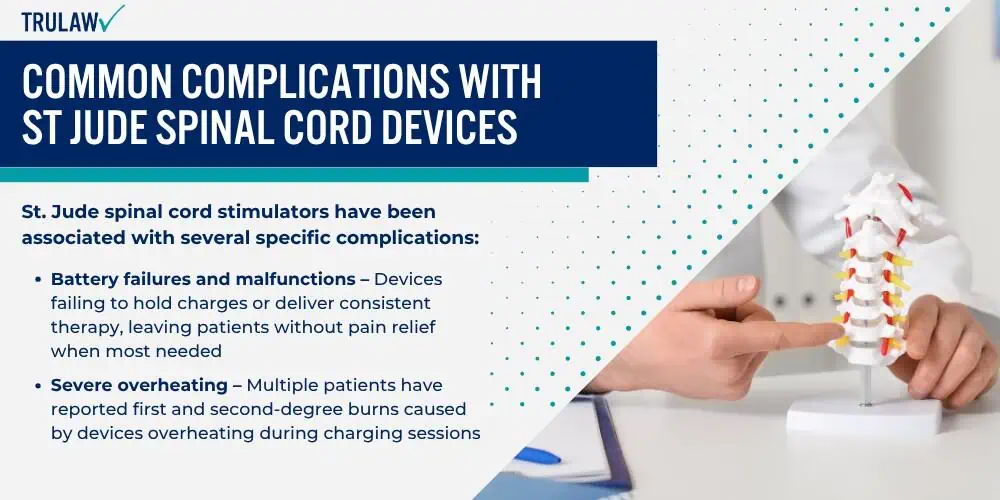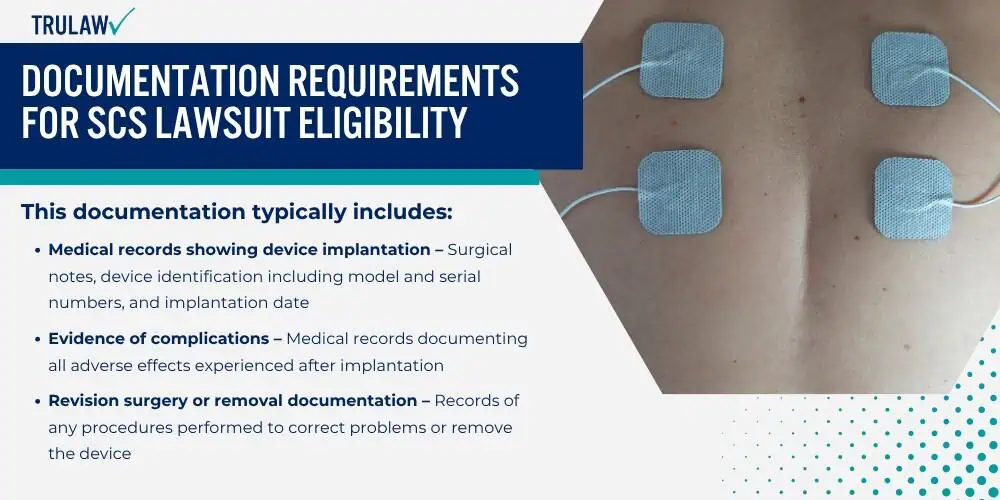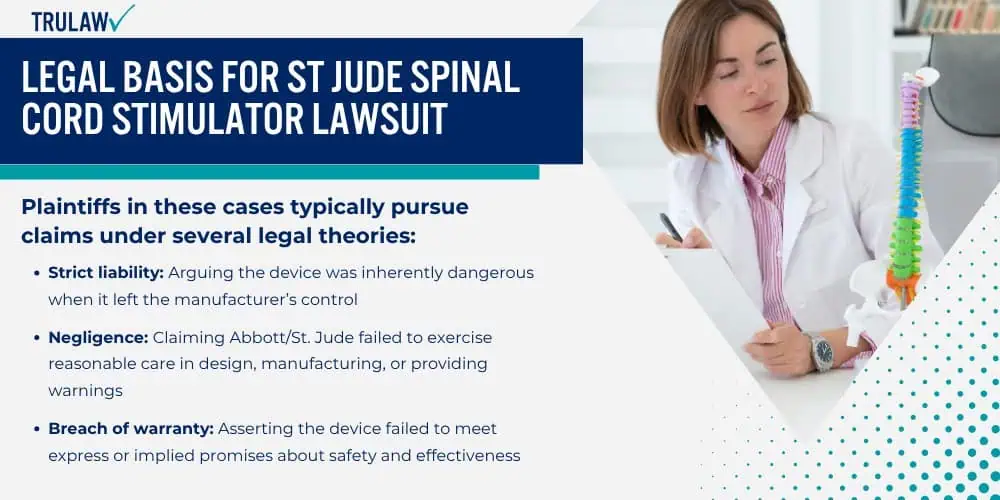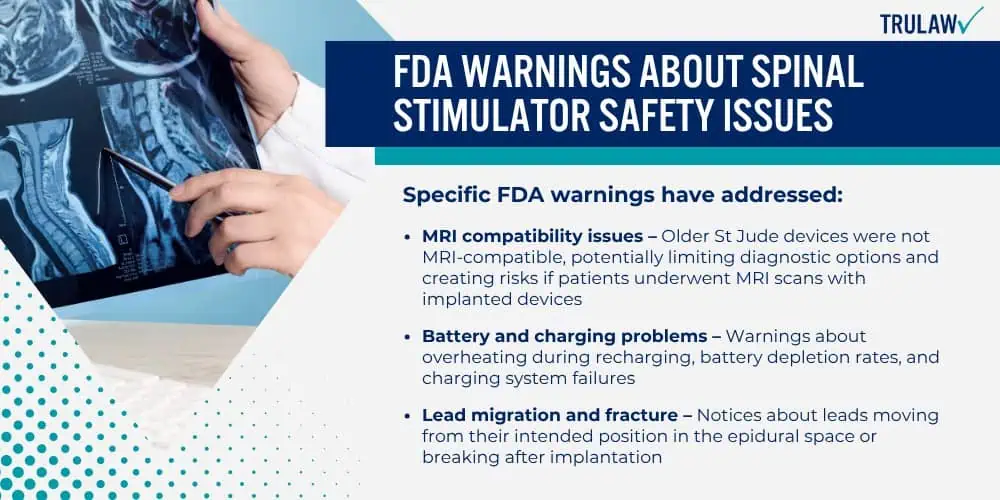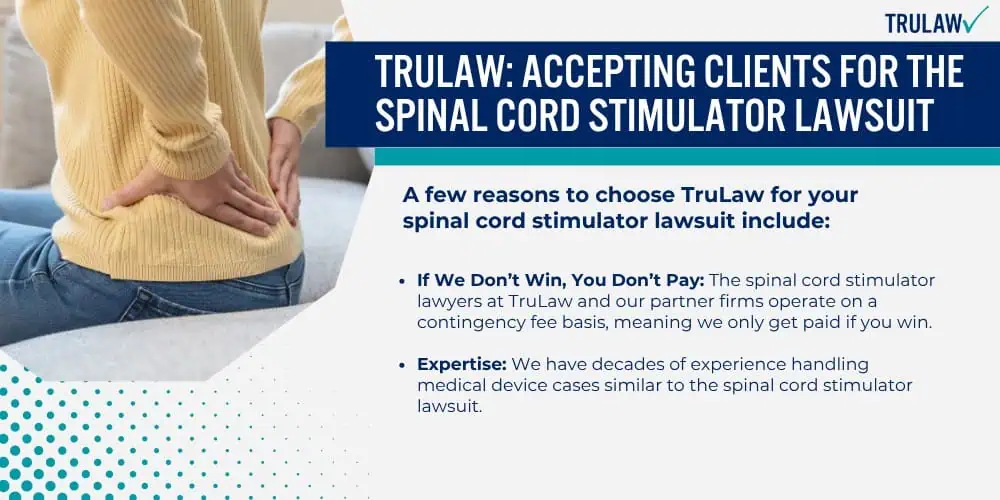Our Spinal Cord Stimulator attorney at TruLaw is dedicated to supporting clients through the process of filing a Spinal Cord Stimulator lawsuit.
With extensive experience in product liability cases, Jessica Paluch-Hoerman and our partner law firms work with litigation leaders and medical experts to prove how defective spinal cord stimulator devices caused you harm.
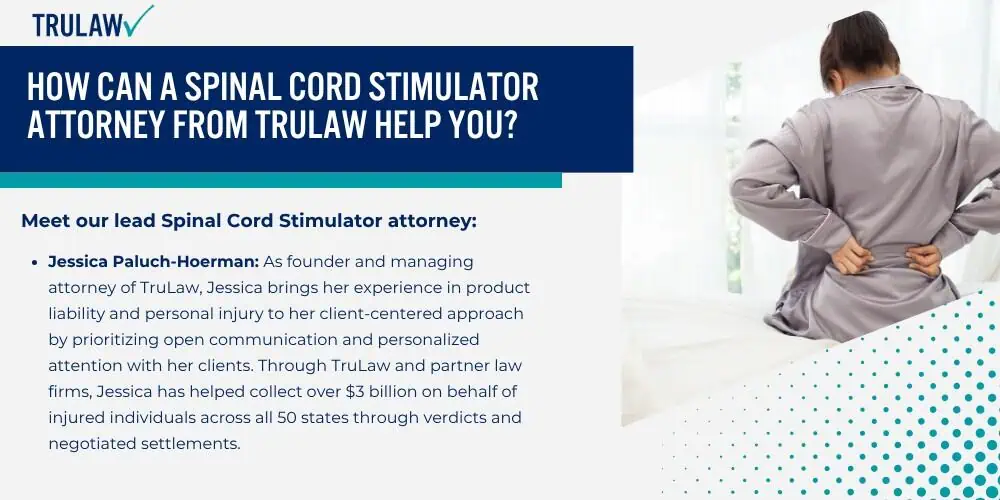
TruLaw focuses on securing compensation for medical expenses, pain and suffering, lost income, and other damages resulting from your spinal cord stimulator injury.
Meet the Lead Spinal Cord Stimulator Attorney at TruLaw
Meet our lead Spinal Cord Stimulator attorney:
- Jessica Paluch-Hoerman: As founder and managing attorney of TruLaw, Jessica brings her experience in product liability and personal injury to her client-centered approach by prioritizing open communication and personalized attention with her clients. Through TruLaw and partner law firms, Jessica has helped collect over $3 billion on behalf of injured individuals across all 50 states through verdicts and negotiated settlements.
How much does hiring a Spinal Cord Stimulator lawyer from TruLaw cost?
At TruLaw, we believe financial concerns should never stand in the way of justice.
That’s why we operate on a contingency fee basis—with this approach, you only pay legal fees after you’ve been awarded compensation for your injuries.
If you or someone you love has experienced complications with spinal cord stimulator implants, you may qualify to seek compensation.
Contact TruLaw using the chat on this page to receive an instant case evaluation and determine your eligibility to join others in filing a Spinal Cord Stimulator Lawsuit today.
